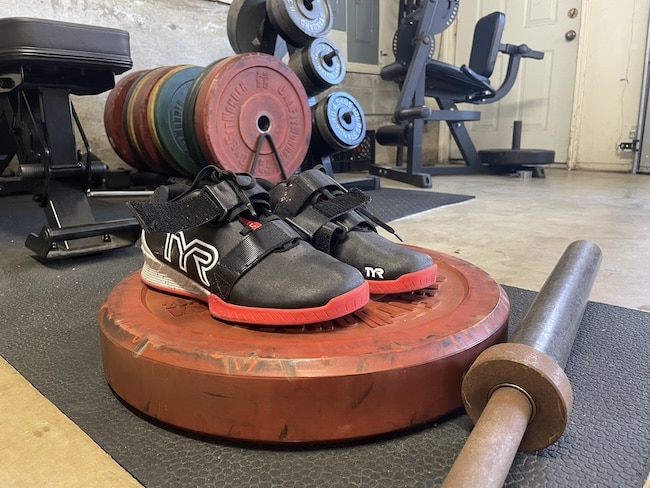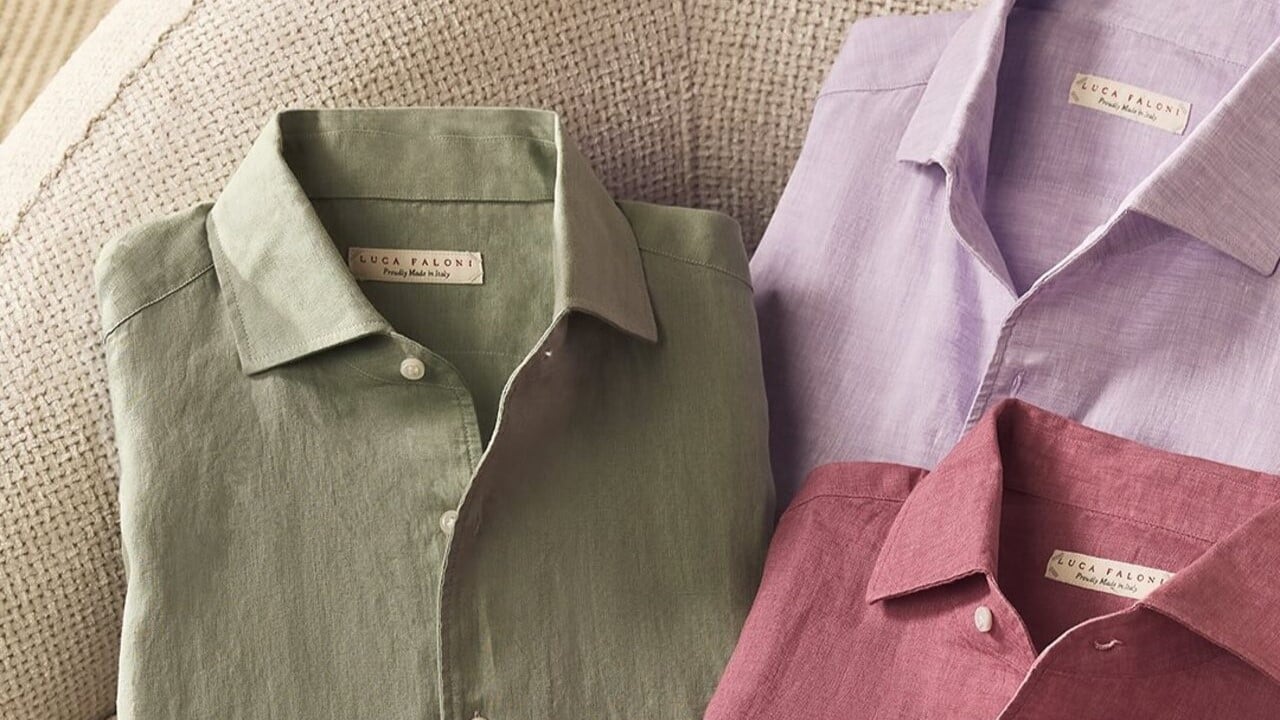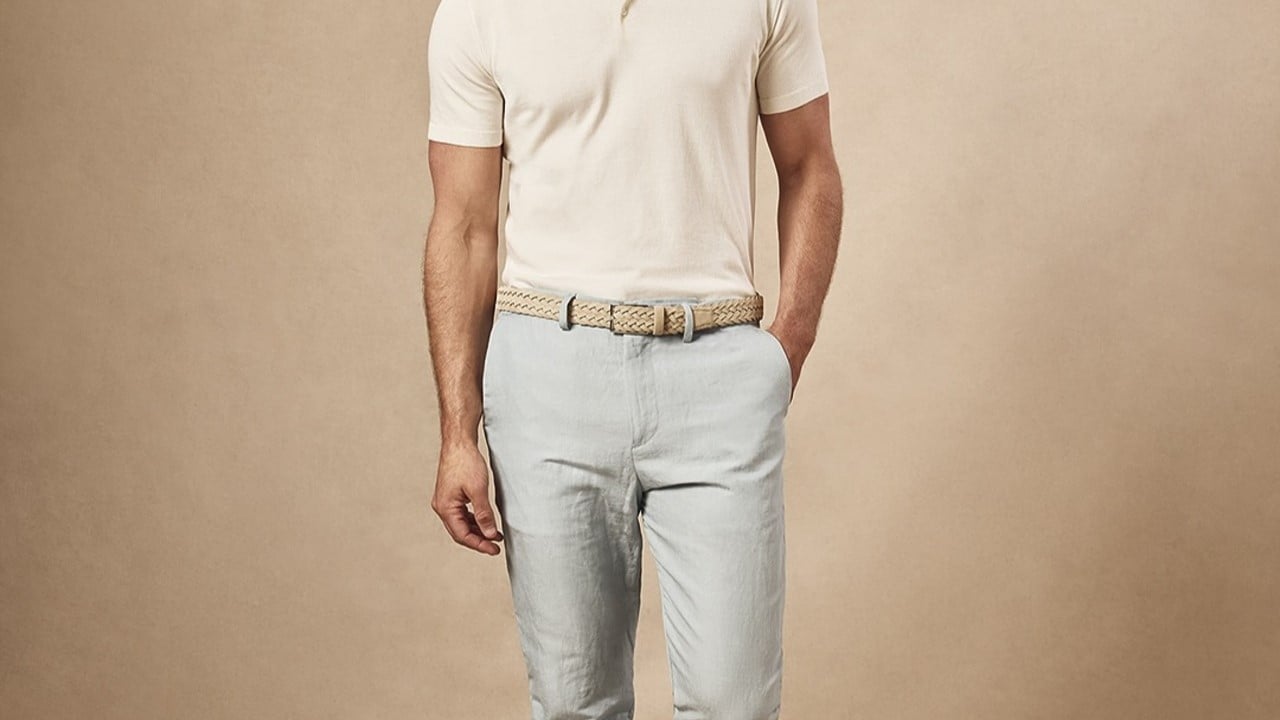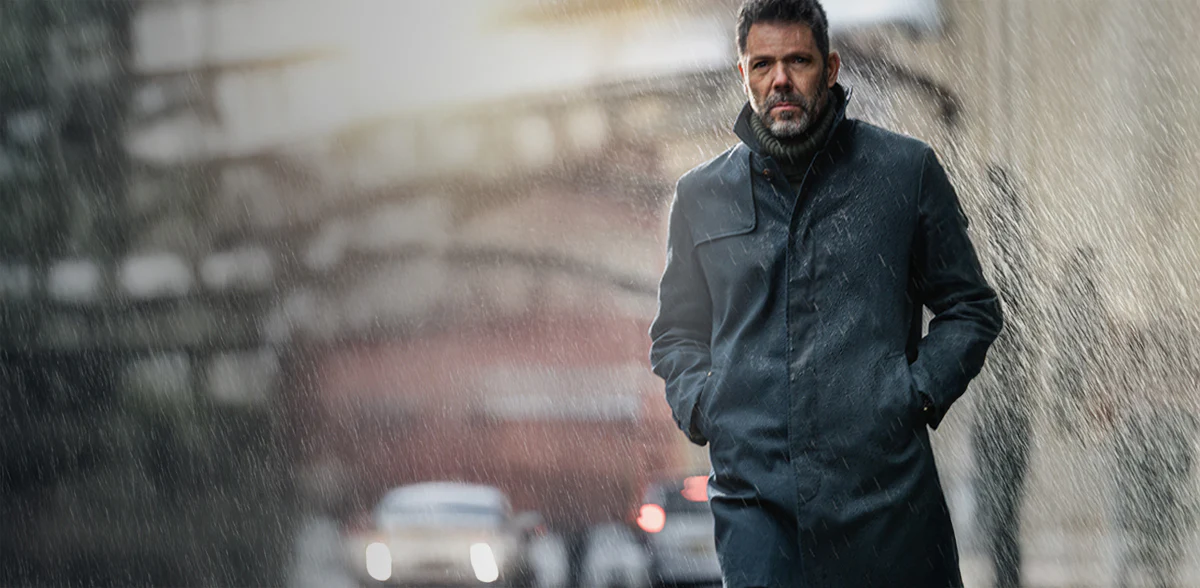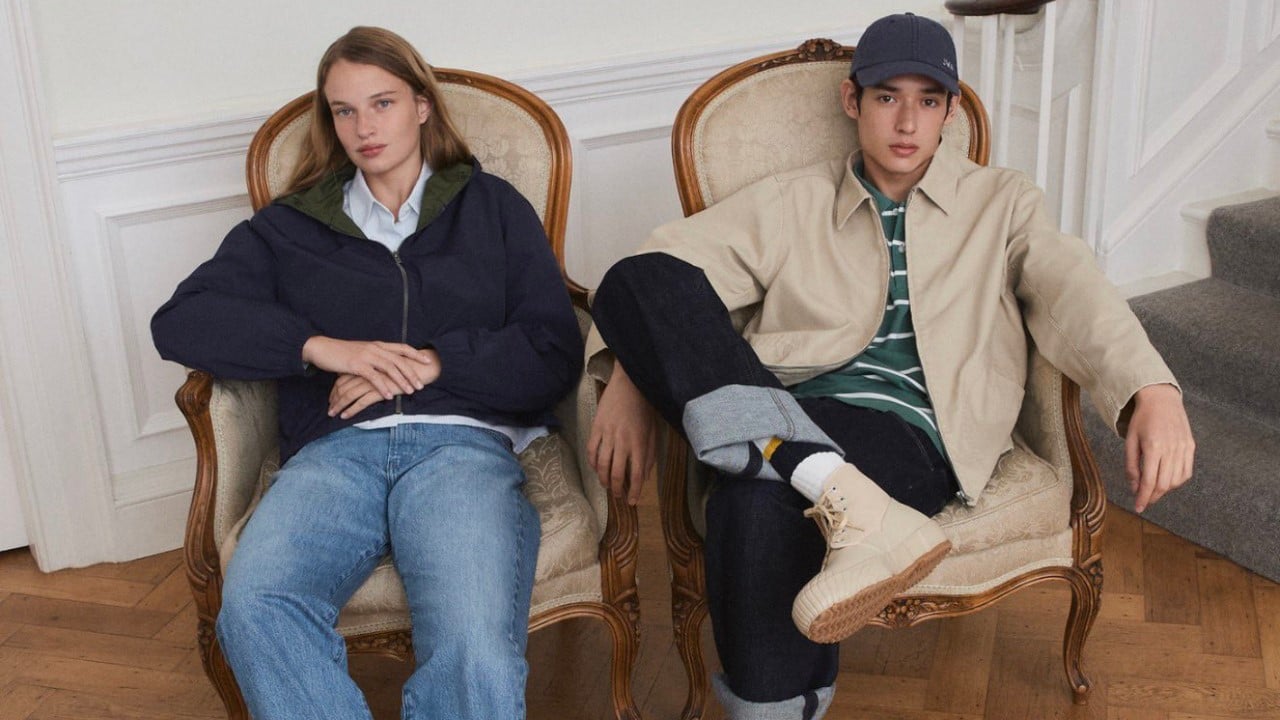The Case for Weightlifting Shoes
Feb 27, 2026Types Of Suits For Men: Different Styles Every Man Should Own 2023
- Aug 24, 2023
- 0 Comments
1045
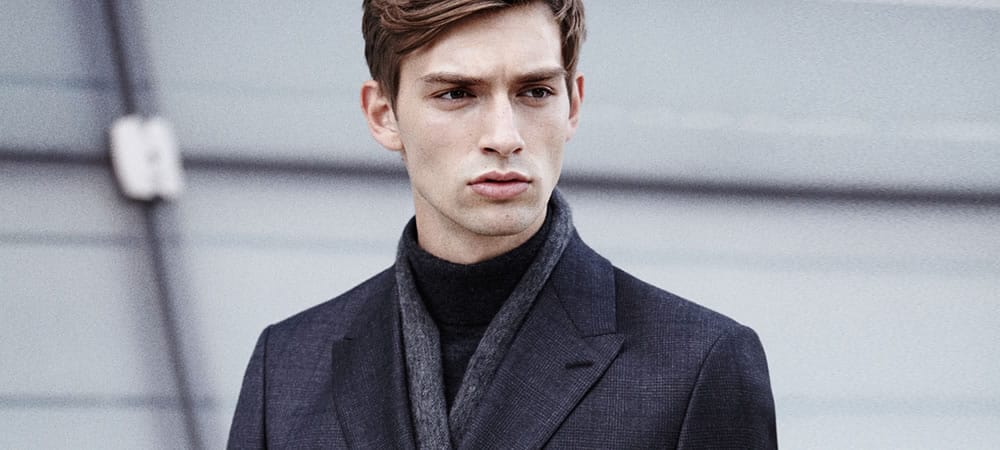
There are few guys who don’t aspire to one day own a walk-in wardrobe filled with all the different types of suits, but we’re often in the dark as to how to get there. For the remainder, suits are a necessary evil: an insurance policy for professional and social occasions that you want to spend the bare minimum on.
Whichever camp you fall into, allow us to illuminate you. When it comes to choosing the suits every man should own, you need to consider several factors: suit fit, lapels, buttons, vents, men’s suspenders, pants, and pockets. If it sounds like we just read off a grocery list full of things you’ve never heard of, fear not. This is your ultimate guide to all the types of suits for men.
The tailoring equivalent of the little black dress, if you buy just one type of suit, make it a slim fit suit in plain navy with two buttons with a notch lapel. You won’t get more use out of anything else. Weddings, job interviews, err, court appearances, it’s got you covered. Especially if you choose a mid-weight fabric – around 11-12oz – so that you can wear it all year round.
Any body type can confidently wear the slim fit suit. There’s just enough definition to make you look great, without being a skinny fit that highlights all your bumps and lumps (and not just your pecs). If you walk away from this article with just one takeaway, it’s that you need to add a slim fit suit to your wardrobe ASAP. Shop confidently online using this guide.
It’s all in the name. A classic fit suit is just that – a type of suit for men that is classic, timeless, which never out of style but is not terribly trendy, either. As a general rule, black skews formal, while light grey is more casual and summery. Navy blue will give you the most scope for day-in, day-out, year-round wear.
Ideally, you want to choose a shade – and fabric – with mileage. Until the foundations of your suit wardrobe are in place, avoid patterns like a plague of ravenous cashmere-chomping moths. Nobody will notice that you wore the same navy or grey suit for two or three days out of the week. Whereas nobody will miss you repeating a Prince of Wales check.
Ahh, the modern fit suit. It’s in between slim and classic in terms of fit, the sartorial equivalent of Oreo creme. It’s a great type of suit to buy as a starter if you’re not ready for the full-on slim fit, but still want to look sharp and refined.
Don’t be swayed by high ‘Super’ numbers – a measure of the material’s fineness. ‘Super’ sounds good, but they’ll also wrinkle more, making them unsuitable for daily use. ‘Fine’ also means ‘delicate’. So if this is your first – or only – suit, then you’re likely to blow through it after a couple of months of continuous wear. When buying this suit, stick instead to around the 100 mark for a sound mix of affordability and durability.
When shopping for must have suits, it’s wise to pay attention to construction. Slightly relaxed-cut, unstructured blazers not only remove the sweat-inducing insulation of padding and linings, they also speak more to the Riviera spirit of summer, as do earth and pastel tones, which never fail to look good next to tanned skin.
The trick to staying cool when the weather’s not isn’t just in choosing the right type of suit, but the right textiles. Tightly woven fabrics such as twill and artificial fibers may be less prone to creasing, but they restrict the amount of air that can circulate through the garment, making ultra-lightweight open-weave linen, seersucker or hopsack a far better choice.
Where collar meets lapel, there is a visible indentation or notch, hence the name ‘notch lapel’ for this suit style. This suit design for men leans on the formal side, but it’s a pretty safe bet for any occasion. A notch lapel is traditionally found on single-breasted suit jackets, and it is one of the most common types of lapels.
Black tie invitations may be few and far between — as infrequent as one a year, even — but they will come, with increasing regularity as you get older. And when they do come, they are invariably for occasions when you want to look and feel at your top: a swanky work party, a wedding, a long-overdue Oscar nomination for Best Actor.
In these rare, but enticing instances, go for a shawl lapel suit. They’re exclusively found on the most formal of formal wear.
The peak lapel is just a half-step below the shawl lapel in terms of fanciness, but not by much. You’ll notice these smart-looking types of suit at elegant events like black-tie weddings.
Plus, you could don ‘black tie creative’ dinner suits for parties even when the invitation doesn’t call for it. If the jacket is cut slim and a tad short, you could even wear it with jeans and a T-shirt on a night out.
The single-breasted suit is by far one of the essential suits for every man to own. More sleek and modern than its counterpart, the single-breasted suit is characterized by only one row of buttons at the front, rather than two, or even three, if we want to harken back to the mid-1930’s. We like not churning our own butter, for now.
Single-breasted suits come with one, two, or three buttons down the front seam in one clean line, and are typically, but not always, accompanied by a notch lapel.
Some style guides might recommend a summer-ready suit in lightweight khaki cotton. Instead, now is the time to make a case for a muted, double-breasted type of suit as your dark horse: specifically, an almost-black grey, or navy that’s close to midnight blue, maybe even in a fabric with a bit of a sheen, like a mohair, and with peak lapels.
The reason? A dark double-breasted suit is versatile enough to enter your everyday rotation. But with the shape, sheen and sharp lapels, it’s also got a bit of swagger about it for those times you need to wear a suit but don’t want to look like you came straight from the office – e.g. cocktail attire invitations and weddings. Just make sure the cut is trim and not too long in the jacket.
The suit’s vent is the small slit at the back of the suit jacket. Functionally, a suit’s vent is there to make your suit feel less restrictive when you’re sitting or moving around. If you’re trying on a new suit and notice the vent is pulling open when you’re standing still, that means the suit is likely too tight, a common suit fit mistake among new suitors. A single vent falls in the center of the back of your suit jacket.
Where the single-vented suit’s slit falls in the center of the jacket’s back, the double-vented suit’s slits are found on either side of the back of the suit jacket. Suits with vents on the sides are more in vogue nowadays, and more commonly found on all types of suit jackets.
No-vent suits are popular in Italy, and thus, one can assume they’re extremely classy. Some tuxedo jackets can be found without a vent (or two). Beware, though, as these jackets typically fit more constrictive and uncomfortable, so not as ideal for everyday wear. If you’re allergic to ironing, steer clear of this men’s suit style.
The most popular among modern suit pants, flat front pants don’t feature any pleating or stitching at the front of the pants. These pants are less forgiving and more revealing than their pleated counterparts. Note: creasing and pleating are different. Keeping your suit pants pressed is a good thing.
Pleated suit pants give off a vintage feeling, which is a trend celebrities like Harry Styles have been exuding with so much confidence lately, we’re inclined to try it, too. Characterized by the pleated folds at the waistband, they’re more comfortable to wear and more forgiving for all body shapes if you’re carrying a bit of a gut.
Details like patch pockets and contrast buttons enable you to wear a jacket and trousers as suit separates, although they’ll also make the suit slightly more smart-casual. A textured or patterned fabric, like a hopsack, birdseye or even a light flannel, help in this regard, too.
Patch pockets do have a way of dressing down a suited outfit, so they’re better for more casual weddings, a day at the derby, or a laid-back weekend event. They’re easy to wear without a tie, too.
The flap pocket is more versatile than the patch pocket, because it can be dressed up and down. Perhaps the most common suit jacket style, this can be transitioned from the board room to the boardwalk for date night. Just don’t take it under the boardwalk, or it’ll get wrinkled.
A jetted pocket gives a suit jacket a more formal feel, and it’s the most common type of suit you’ll see at black tie events. This type of pocket is cut into the jacket’s lining, and the pocket that hangs on the inside, versus the patch pocket, which is visible from the outside.
Types of Suits FAQs
What are the main different types of suits?
The three main different kinds of suits are the modern fit suit, the classic fit suit, and the slim fit suit. Other details you should look for when choosing a suit are things like pockets, buttons, vents, different pant styles and lapels.
What is the best suit for a wedding?
What to wear to a wedding reception varies tremendously depending on the type of wedding and expected level of formality. If the dress code is black tie, go for a shawl collar suit or tuxedo in black. For less formal occasions, a navy blue suit or dark grey suit would be preferred. Darker colors tend to lend themselves to more fancy events.
What is the best suit for a funeral?
A black suit is best for a funeral, but dark and light gray suits work too, depending on the season.
What is a 5-piece suit?
Reserved for the times when you want to look like a million bucks, a 5-piece suit refers to a suit that has all the elements. This includes a matching suit jacket, trousers, waistcoat or vest, bowtie or tie and a dress shirt.
Publisher: Source link


